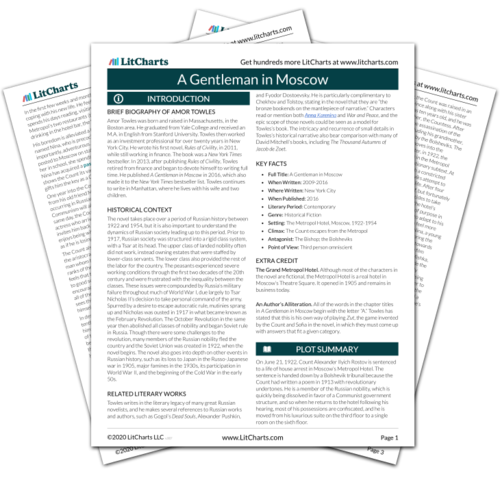



Though Stalin and Khrushchev make their presences felt, Towles largely treats politics as a dark, distant shadow. Spread across four decades, this is in all ways a great novel, a nonstop pleasure brimming with charm, personal wisdom, and philosophic insight. For the Count, that way of life ultimately becomes less about aristocratic airs and privilege than generosity and devotion. "We are bound to find comfort from the notion that it takes generations for a way of life to fade," says the companionable narrator. A man of refined taste in wine, food, and literature, he strives to maintain a daily routine, exploring the nooks and crannies of the hotel, bonding with staff, accepting the advances of attractive women, and forming what proves to be a deeply meaningful relationship with a spirited young girl, Nina. Inside the elegant Metropol, located near the Kremlin and the Bolshoi, the Count slowly adjusts to circumstances as a "Former Person." He makes do with the attic room, to which he is banished after residing for years in a posh third-floor suite. Sentenced to house arrest in Moscow's Metropol Hotel by a Bolshevik tribunal for writing a poem deemed to encourage revolt, Count Alexander Rostov nonetheless lives the fullest of lives, discovering the depths of his humanity.


 0 kommentar(er)
0 kommentar(er)
